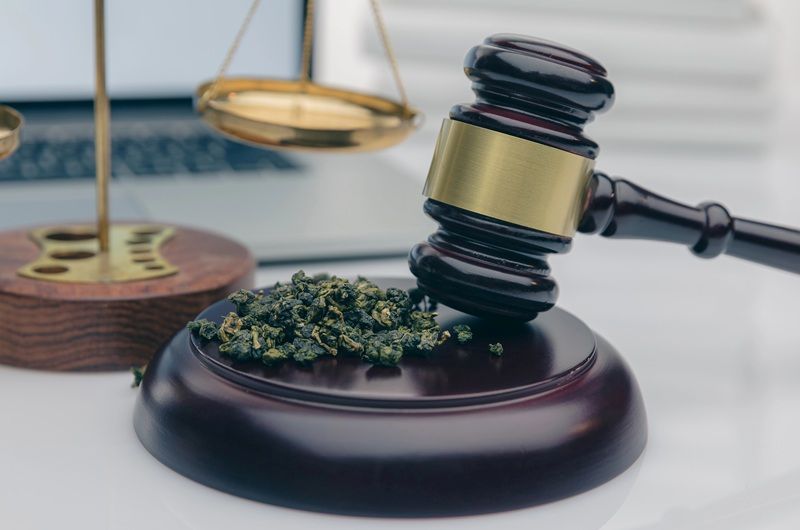Juvenile delinquency involves legal violations committed by individuals under 18. While these offenses occur during one’s youth, their consequences can extend into adulthood and influence various aspects of life. In Fairfax County, Virginia, specific laws govern the handling and confidentiality of juvenile records.
This article explores the nature of juvenile records in Virginia, their confidentiality, and exceptions to privacy. It also includes the expungement process and its impact on future opportunities. Learn how Fairfax County Criminal Attorneys can assist in navigating these complex issues.

Understanding Juvenile Records In Virginia
Juvenile records encompass documentation of legal proceedings involving minors. These include arrest reports, court proceedings, and dispositions related to offenses committed by individuals under 18. They are typically confidential and handled within the juvenile justice system, focusing on rehabilitation rather than punishment.
In Virginia, the juvenile justice system operates separately from the adult criminal system. This distinction emphasizes rehabilitation and privacy for minors. Juvenile records are not considered criminal convictions but are instead adjudications, reflecting the system’s rehabilitative intent.
However, the confidentiality of these records is not absolute. Certain circumstances and legal provisions can lead to the disclosure of juvenile records, which impacts an individual’s future opportunities. The nature and handling of juvenile records in Virginia assess their potential impact on one’s life. Next, delve into the confidentiality provisions surrounding these records.
Familiarizing With The Juvenile Records Confidentiality
Virginia law typically keeps juvenile court records confidential to protect minors’ privacy and encourage rehabilitation. These records are not available to the public, preventing widespread access. Only specific individuals or agencies, such as law enforcement or courts, may review them under certain circumstances.
Legal Provisions Ensuring Confidentiality
Under the Virginia Code, juvenile records are confidential, and access is restricted to specific individuals and entities. This restriction aims to prevent public dissemination of information related to a minor’s legal issues, fostering an environment conducive to rehabilitation.
Access To Juvenile Records
Access to juvenile records is strictly limited to specific individuals and entities. The juvenile can review these records with their parents or legal guardians. Attorneys representing the juvenile, court personnel, and probation officers handling the case may also access them.
Additionally, certain government agencies or organizations can access if authorized by the court. These restrictions help protect the minor’s privacy and prevent unnecessary exposure of their legal history. Unauthorized individuals, including employers and educational institutions, cannot access juvenile records without a court order.
This confidentiality ensures that a minor’s past mistakes do not automatically hinder future opportunities. However, in some cases, law enforcement agencies or other authorized bodies may request access for specific legal or investigative purposes. Courts carefully evaluate such requests to balance public safety concerns with the minor’s rehabilitation and privacy rights.
While confidentiality is a cornerstone of the juvenile justice system, certain exceptions allow records disclosure under specific circumstances. Understanding these exceptions is critical for assessing the potential impact of a juvenile record on one’s future.
Comprehending The Exceptions To Confidentiality
Although juvenile records are confidential, there are notable exceptions where disclosure is permitted or required by law. These exceptions can significantly influence an individual’s future, and knowing the conditions to reveal these records is vital.
Certain circumstances necessitate the disclosure of juvenile records:
- Serious Offenses: If a juvenile is adjudicated delinquent for a felony-level offense, the record may be accessible to law enforcement agencies and, in some cases, the public.
- Subsequent Adult Offenses: Juvenile records can be considered in adult sentencing if the individual commits offenses after reaching adulthood.
- School Officials: In cases involving violent crimes or weapon offenses, school authorities may be notified to ensure the safety of the educational environment.
- Background Checks for Specific Positions: Certain employers, particularly those in sensitive sectors like education or childcare, may have legal grounds to access juvenile records during background checks.
The disclosure of juvenile records under these exceptions affects an individual’s future, influencing employment prospects, educational opportunities, and eligibility for professional licenses. It’s critical to be aware of these exceptions to address potential challenges arising from a juvenile record.
Understanding the exceptions to confidentiality highlights the importance of managing juvenile records effectively. One avenue for mitigating the impact of a juvenile record is through expungement, a legal process that can seal these records from public access.
Explaining Juvenile Records Expungement
Expungement is a legal pathway to remove or seal juvenile records, limiting accessibility and mitigating negative impacts on one’s future. In Virginia, the expungement process has specific statutes that outline eligibility criteria and procedural requirements.
- Eligibility Assessment: Determine if the juvenile record qualifies for expungement. Generally, records may be eligible if there is an acquittal or dismissal of charges or the offense is no longer a crime.
- Filing a Petition: Submit a formal petition for expungement to the appropriate court. This petition should include pertinent details about the case and the justification for expungement.
- Court Review: The court will evaluate the petition, considering factors such as the nature of the offense, the individual’s behavior since the incident, and any objections from involved parties.
- Hearing: Sometimes, there’s a hearing where the petitioner can present their case for expungement.
If the court grants the expungement, sealing or deleting records makes them inaccessible to the public, employers, landlords, and most government agencies. Next, learn about the eligibility criteria and other considerations for expungement.
Expungement Eligibility Criteria & Considerations
Expungement of juvenile records depends on various factors, including the nature of the offense and age at the time of the offense. These criteria help determine whether to clear a record.
Nature Of The Offense
Violent felonies and serious offenses may not qualify for expungement, as the law prioritizes public safety. Non-violent offenses, dismissed cases, and minor infractions are more likely to be eligible. Understanding whether a record qualifies is a critical first step in the process.
Timeframe For Expungement
In Virginia, some juvenile records are automatically expunged once an individual turns 19, provided five years have passed since the last court action. However, individuals may need to petition the court to remove the records for more serious cases.
Benefits Of Expungement On The Juvenile Records
Expungement helps individuals move forward without the burden of past mistakes. It can improve employment prospects, educational opportunities, and housing eligibility. Without a juvenile record appearing in background checks, individuals can pursue a fresh start without legal barriers holding them back.
Understanding expungement highlights the importance of clearing juvenile records when possible. However, even when you cannot expunge your records, it is still vital to recognize how they might impact your future opportunities.
Impacting Future Opportunities
Whether sealed or not, juvenile records can still affect various aspects of a person’s life. Employers, schools, and government agencies may review criminal histories, making it necessary to determine how these records appear in background checks.
Effects On Employment
Many employers conduct background checks, and a juvenile record can sometimes appear, particularly in fields requiring security clearances, professional licenses, or positions of trust. For example, law enforcement, education, and healthcare jobs may require full disclosure of past juvenile offenses.
Higher Education Concerns
Some colleges and universities request criminal history information on applications. While juvenile records are often confidential, certain institutions may still ask applicants to disclose prior offenses, particularly for scholarships or specialized programs.
Housing & Financial Opportunities
Landlords and financial institutions may conduct background checks that reveal past juvenile offenses, which can impact housing applications or loan approvals. Though these records are not always disclosed, exceptions can make it difficult for individuals to secure stable housing or financial aid.
Long-Term Consequences & Solutions
Even when juvenile records do not automatically appear in background checks, they can still influence personal and professional decisions. Taking proactive legal steps, such as pursuing expungement or legal representation, can help minimize these challenges.
Understanding the long-term consequences of juvenile records emphasizes the importance of legal assistance. Working with an experienced law firm can provide the guidance necessary to protect a child’s future.
Protecting Your Child With Fairfax County Criminal Attorneys

At Fairfax County Criminal Attorneys, we are committed to defending the rights of juveniles facing legal challenges. Our team understands that one mistake should not define a child’s future. We offer legal solutions tailored to reducing the impact of juvenile records.
We guide families through the legal process, helping them understand their rights and options. Whether seeking expungement, challenging record disclosures, or navigating court proceedings, we provide personalized strategies to protect our clients’ best interests.
We aim to minimize the long-term effects of juvenile records and help young individuals move forward. We advocate for second chances and ensure our clients have the legal support they need to pursue a brighter future.
If your child is facing a juvenile charge, we are here to help. Our dedicated legal team can provide strong advocacy and legal solutions that safeguard their future opportunities.
Juvenile records can impact background checks, affecting employment, education, and housing opportunities. While these records are generally confidential, exceptions allow them to be accessed. Expungement is a legal solution that can help mitigate these effects, offering individuals a fresh start.
At Fairfax County Criminal Attorneys, we work to protect the futures of juveniles facing legal challenges. If your child has a juvenile record, seeking legal guidance is the best way to ensure their rights are protected and their opportunities remain open. Contact us today for trusted legal support.




